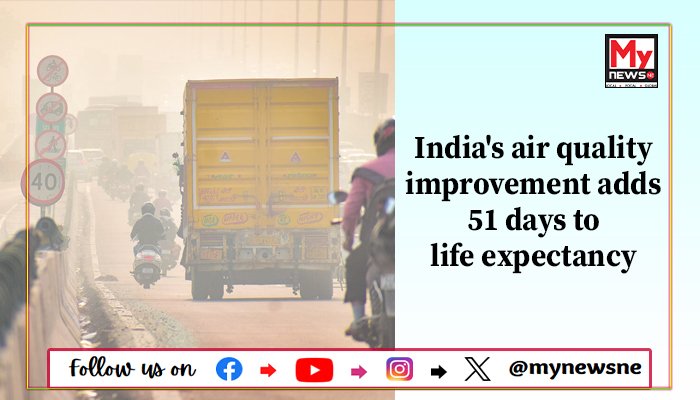India’s Air Pollution Reduction Adds 51 Days to Life Expectancy, EPIC Report Finds
National Desk, 28th August: A recent report by the Energy Policy Institute at the University of Chicago (EPIC) highlights a significant improvement in India’s air quality, resulting in an average increase of 51 days in the life expectancy of its citizens. According to the “Air Quality Life Index” 2024 report, India achieved a notable 19.3% reduction in particulate pollution in 2022 compared to the previous year, marking the second-highest decrease globally, following Bangladesh.
The decline in PM2.5 concentrations, which fell to approximately 9 micrograms per cubic metre in 2022, is attributed to favourable weather conditions and a decrease in thermal inversions. The most substantial improvements were recorded in certain districts of West Bengal and Jharkhand, where PM2.5 levels dropped by over 20 micrograms per cubic metre.
Despite these advancements, the report warns that India still faces a potential loss of 3.6 years in life expectancy if the country does not meet the World Health Organisation’s annual PM2.5 standard of 5 micrograms per cubic metre.
Avinash Chanchal, Campaign Manager at Greenpeace India, underscored the importance of the findings, stating, “The report highlights that even modest reductions in air pollution can significantly extend life expectancy. Persistent air pollution poses severe public health risks.”
The report also credits the National Clean Air Programme (NCAP), launched in 2019, for its role in the improvements. Districts covered by NCAP saw a 19% decline in PM2.5 levels, compared to a 16% reduction in non-NCAP areas. The NCAP aims to cut particulate pollution by 40% by 2026, with 131 cities under its purview.
Further, innovative policies such as Gujarat’s market for particulate pollution have been praised for reducing pollution by 20-30% in Surat and expanding to other regions.
However, the report notes that over 40% of India’s population still breathes air that exceeds the national annual PM2.5 standard of 40 micrograms per cubic metre, indicating ongoing challenges in achieving clean air across the country.

